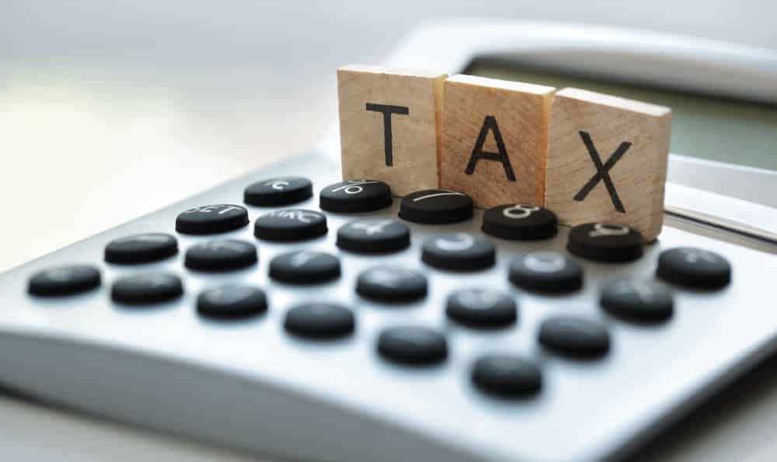
The Ministry of Finance proposes regulations on subjects subject to special consumption tax.
Taxable entities
In Article 3 of the draft, the Ministry of Finance proposes the following subjects subject to special consumption tax:
Subjects subject to special consumption tax are implemented according to the provisions of Article 2 of the Law on Special Consumption Tax. Some cases are stipulated as follows:
1. Motor vehicles with less than 24 seats, including: passenger cars; four-wheeled motor vehicles; passenger pickup trucks; double-cabin cargo pickup trucks; VAN trucks with two or more rows of seats, designed with a fixed partition between the passenger compartment and the cargo compartment, excluding the types of vehicles specified in Point d, Clause 1, Article 3 of the Law on Special Consumption Tax and specified in Clause 6, Article 4 of this Decree.
2. Airplanes, helicopters, gliders and yachts, excluding the types specified in Point c, Clause 1, Article 3 of the Law on Special Consumption Tax and specified in Clause 5, Article 4 of this Decree.
3. Air conditioners with a capacity of over 24,000 BTU to 90,000 BTU, except for those designed by the manufacturer to be installed only on means of transport including cars, railway cars, airplanes, helicopters, ships, and boats. In case the manufacturing organization or individual sells or the importing organization or individual imports each part separately, the hot or cold unit, the goods sold or imported (hot or cold unit) are still subject to special consumption tax as for the finished product (complete air conditioner);
In case an organization or individual imports or entrusts the import of a central air conditioning system of over 90,000 BTU, or an organization or individual imports and signs a contract with a domestic equipment installation contractor to supply a central air conditioning system of over 90,000 BTU, the delivery depends on the construction progress of the project (this air conditioning system is imported in multiple times and shipments), the Ministry of Finance shall provide guidance on the documents to determine the subjects not subject to special consumption tax in this case.
4. Soft drinks according to National Standards (TCVN) with sugar content over 5g/100ml as prescribed in Point l, Clause 1, Article 2 of the Law on Special Consumption Tax are soft drinks according to Vietnam's National Standards (TCVN 12828:2019) with sugar content over 5g/100ml, including: flavored drinks (including energy drinks, sports drinks, electrolyte drinks and other special drinks), soft drinks containing coffee, soft drinks containing tea, herbal drinks, soft drinks containing fruit juice and cereal drinks.
Soft drinks according to TCVN 12828:2019 do not include the following products: milk and dairy products; liquid foods used for nutritional purposes; natural mineral water and bottled drinking water; vegetable and fruit juices and nectars (molasses) of vegetables and fruits and cocoa products.
Sugar content is calculated as total sugar content according to the Ministry of Health 's guidelines on product labels, including the criteria for sugar content listed on product labels.
5. Operating dance halls and karaoke businesses according to the provisions of Decree No. 54/2019/ND-CP dated June 19, 2019 of the Government regulating karaoke and dance hall services (amended and supplemented by Decree No. 148/2024/ND-CP dated November 12, 2024).
6. Massage business is determined by specialized legal regulations as a conditional business type.
7. Casino business as prescribed in Decree No. 03/2017/ND-CP dated January 16, 2017 of the Government on casino business (amended and supplemented by Decree No. 145/2024/ND-CP dated November 4, 2024); prize-winning electronic games include jackpot games, slot machines and similar machines as prescribed in Decree No. 121/2021/ND-CP dated December 27, 2021 of the Government on prize-winning electronic game business for foreigners.
8. Betting business includes sports betting, entertainment betting and other forms of betting as prescribed in Decree No. 06/2017/ND-CP dated January 24, 2017 of the Government on betting business on horse racing, dog racing and international football (amended and supplemented in Article 9 of Decree No. 151/2018/ND-CP dated November 7, 2018 of the Government amending and supplementing a number of Decrees regulating investment and business conditions under the state management of the Ministry of Finance).
9. Golf business as prescribed in Decree No. 52/2020/ND-CP dated April 27, 2020 of the Government on investment in construction and business of golf courses (amended and supplemented in Article 107 of Decree No. 31/2021/ND-CP dated March 26, 2021 of the Government detailing and guiding the implementation of a number of articles of the Investment Law) includes golf course business, sale of membership cards, and golf tickets.
10. Lottery business according to the provisions of Decree No. 30/2007/ND-CP dated March 1, 2007 of the Government on lottery business (amended and supplemented by a number of articles in Decree No. 78/2012/ND-CP dated October 5, 2012 of the Government and Article 4 of Decree No. 151/2018/ND-CP dated November 7, 2018).
11. In case it is necessary to amend or supplement taxable subjects to suit the socio-economic context in each period, the Ministry of Finance shall preside over and coordinate with relevant ministries and agencies to report to the Government to submit to the National Assembly Standing Committee for consideration and decision.
Non-taxable objects
Article 4 of the draft clearly states:
Subjects not subject to special consumption tax are implemented according to the provisions of Article 3 of the Law on Special Consumption Tax. Some cases are stipulated as follows:
1. Goods produced, processed, or hired for processing by organizations or individuals are directly exported abroad or sold or entrusted to other business organizations or individuals for export abroad. Goods exported abroad specified in this clause do not include: goods sold from the domestic market to duty-free zones; goods produced, processed, hired for processing, or traded between duty-free zones.
2. Temporarily imported, re-exported and temporarily exported, re-imported goods are not subject to import tax or export tax within the time limit prescribed by the law on export tax and import tax. In case of exceeding the re-export, re-import period or selling or changing the purpose of use within the temporary import, temporary export period, business organizations and individuals must pay special consumption tax.
a) Temporarily imported and re-exported goods, if actually re-exported within the period of no import tax payment according to the provisions of law on export tax and import tax, shall not have to pay special consumption tax corresponding to the quantity of goods actually re-exported.
b) Temporarily exported and re-imported goods, if actually re-imported within the period of not having to pay export tax according to the provisions of law on export tax and import tax, are not required to pay special consumption tax corresponding to the quantity of goods actually re-imported.
3. Personal belongings of foreign organizations and individuals according to diplomatic immunity standards as prescribed in Appendix I, II, III of Decree No. 134/2016/ND-CP dated September 1, 2016 of the Government detailing a number of articles and measures to implement the Law on Export Tax and Import Tax (amended and supplemented by Decree No. 18/2021/ND-CP dated March 11, 2021); goods within the import tax-free luggage standards as prescribed in Article 6 of Decree No. 134/2016/ND-CP dated September 1, 2016 of the Government detailing a number of articles and measures to implement the Law on Export Tax and Import Tax; Imported goods for sale at duty-free shops as prescribed in Decree No. 68/2016/ND-CP dated July 1, 2016 of the Government regulating the conditions for trading in duty-free goods, warehouses, locations for customs procedures, gathering, inspection and supervision (amended and supplemented by a number of articles in Decree No. 67/2020/ND-CP dated June 15, 2020 of the Government) and Decree No. 100/2020/ND-CP dated August 28, 2020 of the Government on trading in duty-free goods.
4. Goods exported abroad for which the manufacturer or importer has paid special consumption tax and are returned by the foreign side upon import are goods not subject to the provisions of Clause 1 of this Article and have documents proving the payment of special consumption tax as prescribed.
Goods specified in this clause must meet the condition of not having been used, processed or manufactured.
5. Airplanes, helicopters, gliders, and yachts used for the business of transporting goods, passengers, and tourists, and airplanes, helicopters, and gliders used for security, national defense, ambulance, rescue, firefighting, pilot training, filming, photography, surveying, and agricultural production.
In case the purpose of use of the aircraft, helicopter, glider, or yacht mentioned in this clause changes from the purpose determined to be non-taxable, it shall be subject to special consumption tax. In which:
a) Business organizations and individuals with imported airplanes, helicopters, gliders, and yachts that change their intended use must declare and pay special consumption tax to customs authorities according to the Ministry of Finance's guidance on customs procedures; customs inspection and supervision; export tax, import tax, and tax management for exported and imported goods.
b) Business organizations and individuals with domestically produced airplanes, helicopters, gliders, or yachts that change their purpose of use shall perform the obligation to pay special consumption tax on behalf of the manufacturing organizations and individuals and declare and pay special consumption tax on the remaining value after deducting the depreciated value according to regulations with the directly managing tax authority.
6. For automobiles and four-wheeled passenger vehicles with engines specified in Point d, Clause 1, Article 3 of the Law on Special Consumption Tax, these are vehicles designed by the manufacturer to be used as ambulances, prisoner transport vehicles, and hearses; automobiles designed to have both seats and standing space to carry 24 people or more; passenger cars and four-wheeled passenger vehicles with engines that are not registered for circulation and only run within the scope of entertainment, recreation, sports areas, historical sites, hospitals, and schools; specialized automobiles serving security and national defense as determined by the Ministry of Public Security or the Ministry of National Defense. The Ministry of Construction shall preside over and coordinate with relevant agencies to determine and provide specific guidance on other specialized vehicles that are not subject to special consumption tax in case of any arising issues.
For passenger cars and four-wheeled motor vehicles that are not registered for circulation and only run within the area of entertainment, entertainment, sports, historical sites, hospitals, and schools that are not subject to tax as prescribed in this clause, there must be documents proving that they only run within the area of entertainment, entertainment, sports, historical sites, hospitals, and schools and meet the requirements of the Ministry of Finance. Unregistered vehicles are vehicles that are not registered to participate in traffic according to the provisions of the law on road traffic safety and order.
In case the passenger car or four-wheeled motor vehicle mentioned in this clause changes its purpose of use compared to the purpose determined to be non-taxable, it shall be subject to special consumption tax. In which:
a) Business organizations and individuals with imported passenger cars and four-wheeled passenger cars with engines that change their purpose of use must declare and pay special consumption tax to customs authorities according to the Ministry of Finance's guidance on customs procedures; customs inspection and supervision; export tax, import tax and tax management for exported and imported goods.
b) Business organizations and individuals with domestically produced passenger cars and four-wheeled passenger cars with engines that change their purpose of use shall perform the obligation to pay special consumption tax on behalf of the manufacturing organizations and individuals and declare and pay special consumption tax on the remaining value after deducting the depreciated value according to regulations with the directly managing tax authority.
7. In case it is necessary to amend or supplement non-taxable subjects to suit the socio-economic context in each period, the Ministry of Finance shall preside over and coordinate with relevant ministries and agencies to report to the Government to submit to the National Assembly Standing Committee for consideration and decision.
8. The Ministry of Finance provides guidance on the dossier for determining subjects not subject to special consumption tax as prescribed in Clauses 1 and 2 of this Article.
We invite readers to read the full draft and give comments here./.
Source: https://baochinhphu.vn/de-xuat-quy-dinh-moi-ve-doi-tuong-chiu-thue-tieu-thu-dac-biet-10225091919073961.htm


![[Photo] Prime Minister Pham Minh Chinh meets with Chairman of the State Duma of the Russian Federation Vyacheslav Volodin](https://vphoto.vietnam.vn/thumb/1200x675/vietnam/resource/IMAGE/2025/9/29/08ca17cb0c46432dbdb94f9eaf73b47a)
![[Photo] Joy on the new Phong Chau bridge](https://vphoto.vietnam.vn/thumb/1200x675/vietnam/resource/IMAGE/2025/9/28/b00322b29c8043fbb8b6844fdd6c78ea)
![[Photo] The 4th meeting of the Inter-Parliamentary Cooperation Committee between the National Assembly of Vietnam and the State Duma of Russia](https://vphoto.vietnam.vn/thumb/1200x675/vietnam/resource/IMAGE/2025/9/28/9f9e84a38675449aa9c08b391e153183)
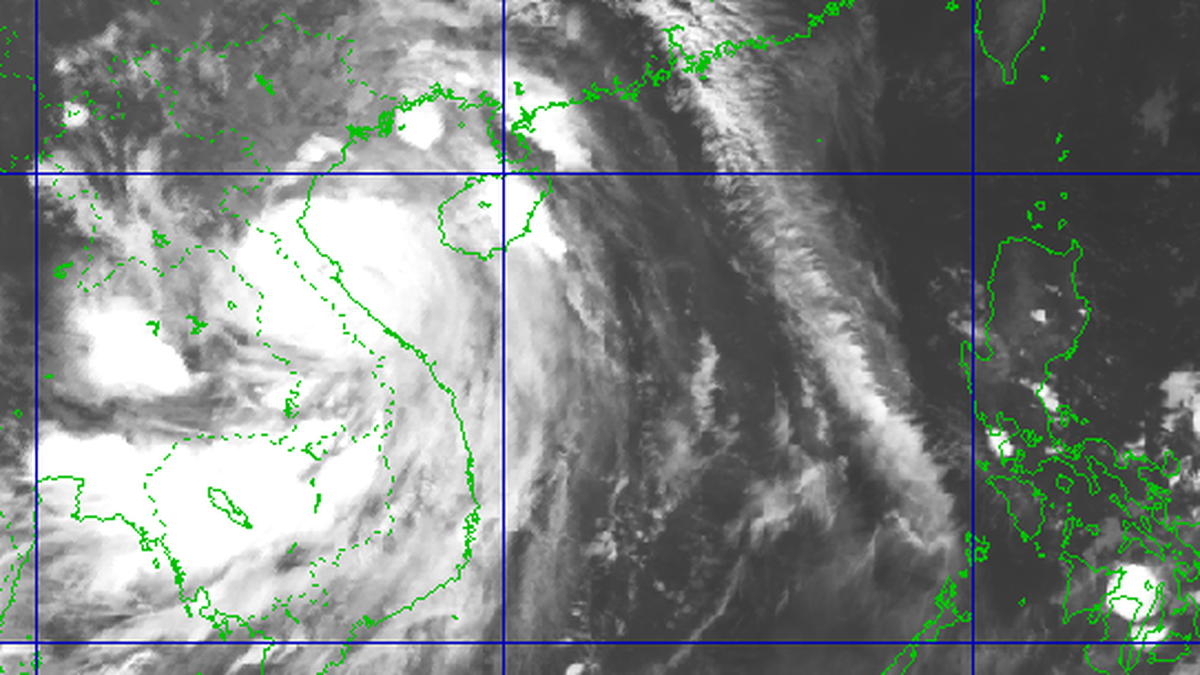
![[Photo] President Luong Cuong receives Chairman of the State Duma of the Russian Federation Vyacheslav Volodin](https://vphoto.vietnam.vn/thumb/1200x675/vietnam/resource/IMAGE/2025/9/29/6bd456e072504df3a468acbf9b7989c8)

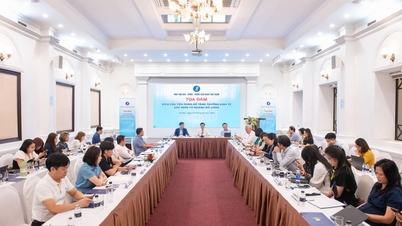



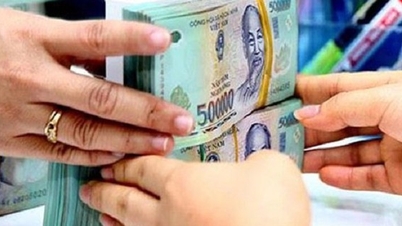
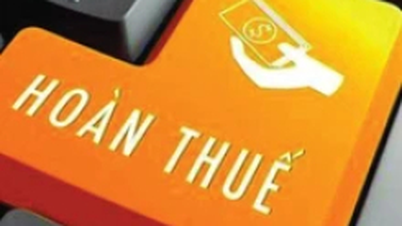

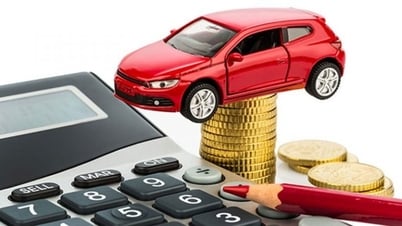

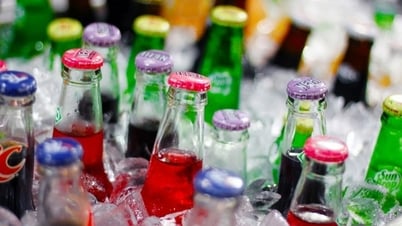


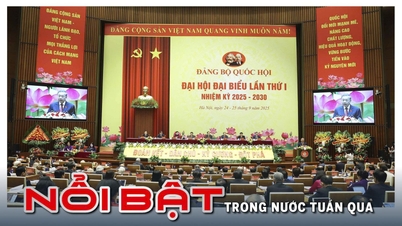
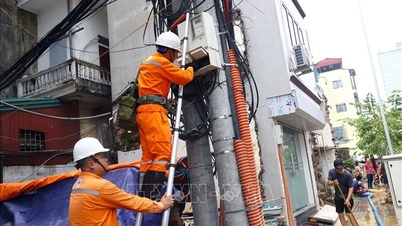
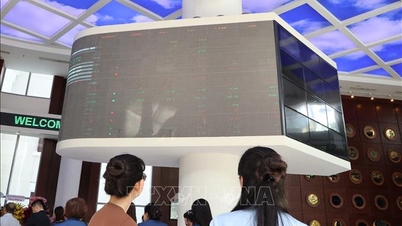

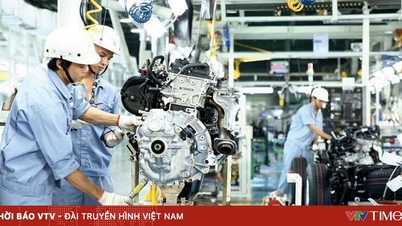





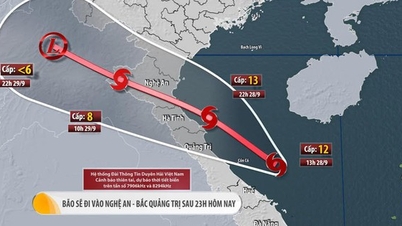
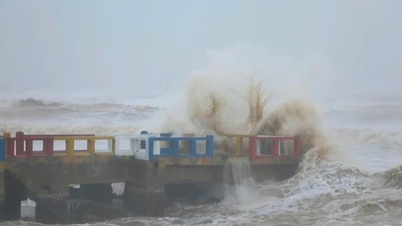
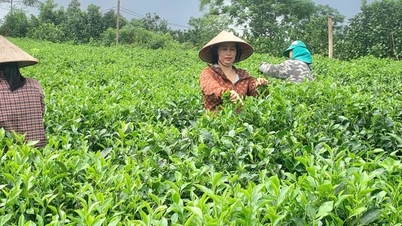
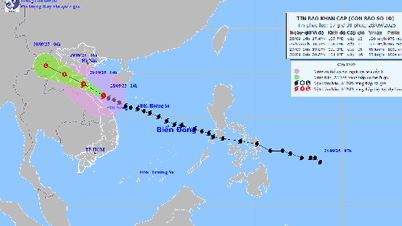
























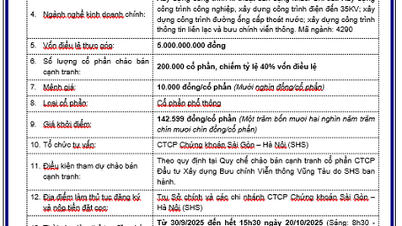

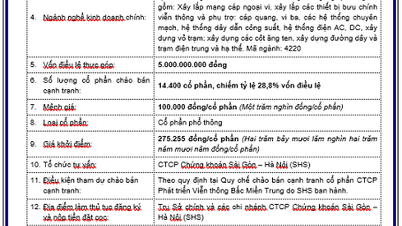

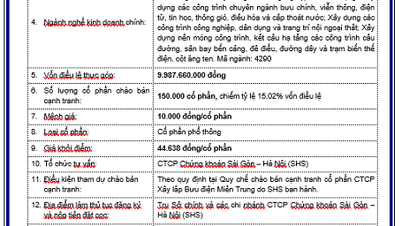
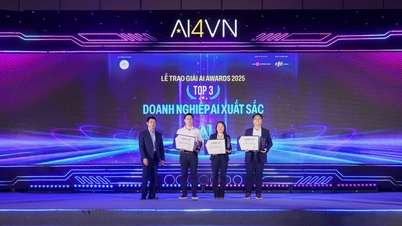

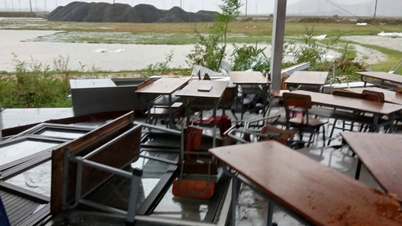

![[Photo] President Luong Cuong receives Chairman of the State Duma of the Russian Federation Vyacheslav Volodin](https://vphoto.vietnam.vn/thumb/402x226/vietnam/resource/IMAGE/2025/9/29/6bd456e072504df3a468acbf9b7989c8)


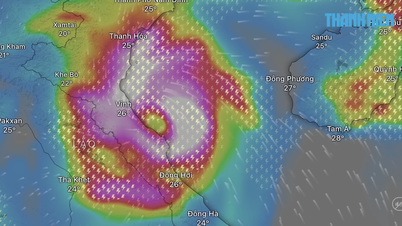



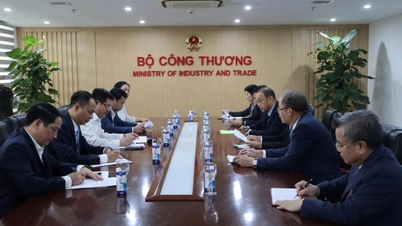











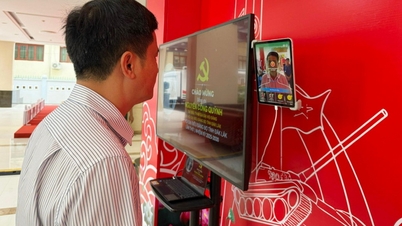















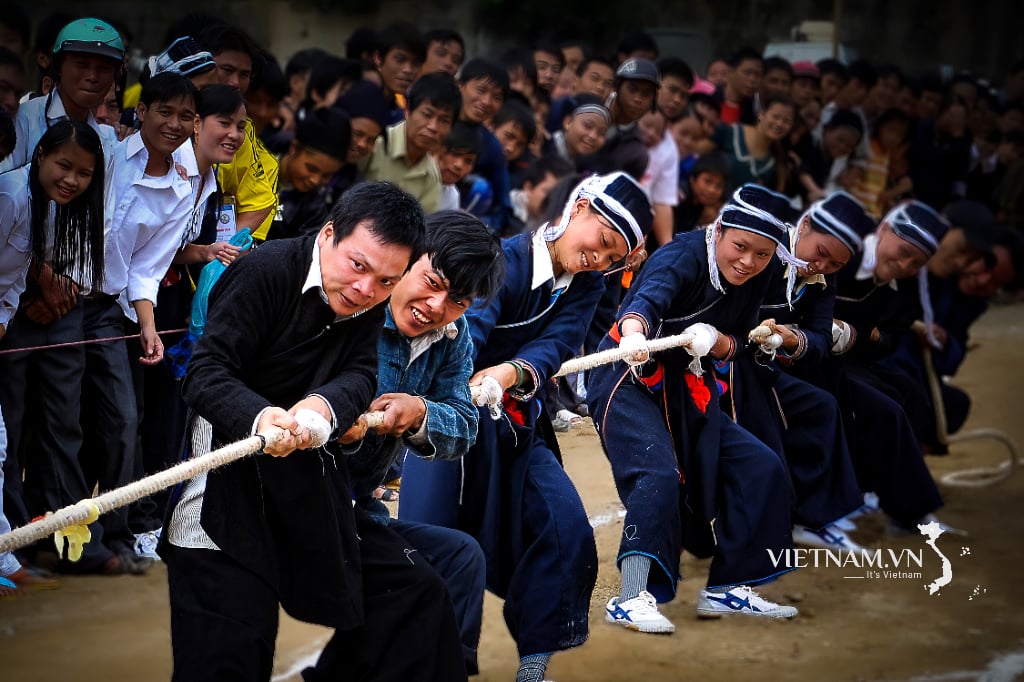


Comment (0)